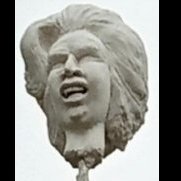Cebu and Davao
-
Recently Browsing 0 members
- No registered users viewing this page.
-
Topics
-
Popular Contributors
-
Latest posts...
-
58
The U.S. economy contracts!
Some people think it's already happening. Publicly, they maintain that they won't back down, and yet privately they've established a large list of items that are exempt from tariffs. This list is widely circulated in China. -
65
Another win for Trump (breaking news)
You need to check your statements for truth and not project you ignorance to blame others. The major problems and conflict in donbas started around 2014 with Russian back separatists fighting against Ukraine. It continued off and on before the 2022 invasion. That was not the catalyst for the invasion by any means. There are others reason for Russian invasion that had nothing to do with anything other than Russia seeing an opportunity to take more land over -
29
Politics Supreme Court Dismisses Lawsuit Against Thaksin Shinawatra
Thaksin, a billionaire and influential political figure, There you go , that's what it is about. 😠 -
25
So many food item prices continue to increase every few weeks
What is that for? -
2
Woke Art on the Rails: Avanti’s Diversity Trains Spark Debate Over Priorities
If only his party, when in government, hadn't been so ideologically driven that they had to flog off everything of value, we might actually have a rail network we could be proud of. -
58
The U.S. economy contracts!
First, anyone in the US will tell you that government CPI numbers are BS. All a person has to do is go shopping once in a while. So it's not as if the government isn't capable of distorting reality. They have a lot of experience doing just that. Will that practice continue under Trump? Probably. It makes his life easier, I'm sure, not having to pay retirees fairly. The system is already bankrupt and they're trying to save it, if possible. As for other government statistics? Unless I was hallucinating, I do think I've heard news stories about recent revisions to government data oriiginally released during the Biden administration. To be sure, that kind of thing can occasionally be required, but in these cases, it was characterized as more of a systemic thing based on a past pattern or practice where the Biden administration wished to portray things in a good light. As for Trump's understanding of the trade balance in the context of the World Reserve Currency? You keep bringing that up as if repeating the same nonsense over and over somehow makes it true. It's common knowledge how it all works and is now part and parcel of economic theory. No "proof" is necessary. It's called the Triffin Dilemma. Trump knows, his advisors know, everyone knows. There are even formulas and frameworks published for understanding the dilemma and why it's considered part and parcel of having the world reserve currency. If I may use some AI to assist here (emphasis mine). Or, if this gets deleted, go to Grok or Perplexity and ask it to explain why the Triffin dilemma is part and parcel of having the world reserve currency. The Triffin Dilemma, identified by economist Robert Triffin in the 1960s, highlights a fundamental conflict for a country whose currency serves as the global reserve currency. This conflict arises between domestic economic stability and international obligations to provide liquidity. Below, I’ll explain the dilemma, outline proposed "formulas" (solutions or strategies) to address it, and clarify why it’s an inherent issue for the world reserve currency issuer. Note that the term "formulas" in this context refers to proposed solutions or frameworks, as there are no literal mathematical equations for resolving the dilemma. -- The Triffin Dilemma emerges when a national currency, like the U.S. dollar, is the global reserve currency, meaning it’s widely held by foreign governments and central banks for international trade, debt settlement, and reserves. To meet global demand for this currency, the issuing country must supply enough of it, typically by running trade or balance of payments deficits (spending more abroad than it earns). However, persistent deficits can erode confidence in the currency’s value, leading to economic instability both domestically and globally. This creates a paradox: 1. **International Obligation**: The reserve currency country must provide sufficient liquidity (its currency) to support global trade and economic growth. This often requires running trade deficits, as dollars flow abroad through imports or investments. 2. **Domestic Stability**: Persistent deficits increase the country’s debt and can weaken the currency’s value, causing inflation or loss of confidence, which conflicts with domestic goals like price stability and economic competitiveness. The dilemma was particularly evident under the Bretton Woods system (1944–1971), where the U.S. dollar was pegged to gold, and other currencies were pegged to the dollar. The U.S. had to supply dollars to meet global demand, but this led to a "dollar glut" that strained its gold reserves, culminating in the Nixon Shock of 1971, when the U.S. suspended dollar-to-gold convertibility. Even today, in a fiat currency system, the dilemma persists as the U.S. runs chronic trade deficits to supply dollars, raising concerns about debt sustainability.[] ### Why the Triffin Dilemma is Part and Parcel of Having the World Reserve Currency The Triffin Dilemma is inherent to the role of a global reserve currency because of the dual role the currency plays: 1. **Global Public Good**: A reserve currency acts as an international public good, facilitating trade, investment, and reserve accumulation worldwide. The issuing country must supply enough currency to meet this demand, which often exceeds domestic needs. This supply typically comes through trade deficits, as the country imports more than it exports, sending currency abroad. 2. **Domestic Constraints**: Running persistent deficits to supply the world with currency can undermine the issuing country’s economic health. It may lead to: - **Debt Accumulation**: Chronic deficits increase external debt, as seen with the U.S., where foreign-held federal debt exceeds $7.6 trillion as of Q3 2023 - **Loss of Confidence**: If deficits grow too large, foreign holders may doubt the currency’s stability, potentially triggering a currency crisis 3. **No Escape from the Trade-Off**: The issuing country cannot simultaneously maintain a strong currency (for domestic stability) and provide unlimited liquidity (for global needs) without risking imbalances. If it reduces deficits to stabilize its economy, global liquidity shrinks, potentially slowing world trade and growth. If it continues deficits, it risks devaluing its currency and losing reserve status. This tension was historically evident in the Bretton Woods collapse and remains relevant today, as the U.S. dollar’s dominance (about 60% of global currency reserves) requires ongoing deficits, contributing to a debt-to-GDP ratio projected to hit 150% by 2040. The dilemma is "part and parcel" because any country issuing the global reserve currency faces this conflict, regardless of the monetary system --- Conclusion: The Triffin Dilemma is an inherent challenge for any country issuing the global reserve currency, as it must balance domestic stability against the international need for liquidity. This conflict, rooted in the need to run deficits to supply currency, risks debt accumulation, inflation, and loss of confidence. Proposed solutions—global currency, multi-currency system, gold standard, digital currency, or enhanced coordination—offer ways to mitigate the dilemma but come with significant challenges. The U.S. dollar’s continued dominance underscores the dilemma’s relevance, but its persistence suggests a need for systemic reform to ensure long-term global economic stability.
-
-
Popular in The Pub
-





.thumb.jpeg.d2d19a66404642fd9ff62d6262fd153e.jpeg)



Recommended Posts
Create an account or sign in to comment
You need to be a member in order to leave a comment
Create an account
Sign up for a new account in our community. It's easy!
Register a new accountSign in
Already have an account? Sign in here.
Sign In Now